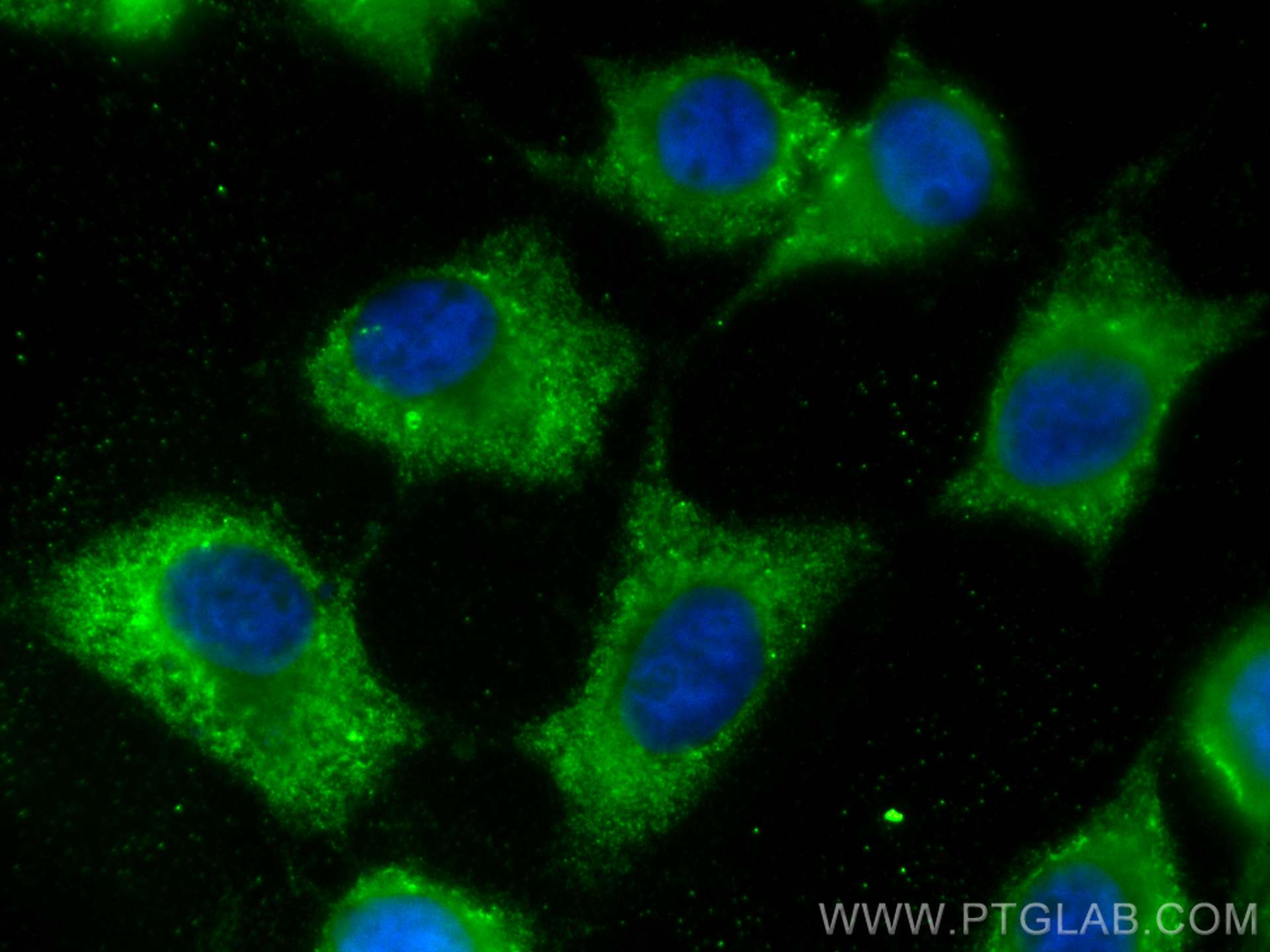Validation Data Gallery
Filter:
Tested Applications
| Positive IF/ICC detected in | A431 cells |
Recommended dilution
| Application | Dilution |
|---|---|
| Immunofluorescence (IF)/ICC | IF/ICC : 1:300-1:1200 |
| It is recommended that this reagent should be titrated in each testing system to obtain optimal results. | |
| Sample-dependent, Check data in validation data gallery. | |
Product Information
CL488-67634 targets GSTM3 in IF/ICC applications and shows reactivity with Human, pig samples.
| Tested Reactivity | Human, pig |
| Host / Isotype | Mouse / IgG1 |
| Class | Monoclonal |
| Type | Antibody |
| Immunogen | GSTM3 fusion protein Ag7494 相同性解析による交差性が予測される生物種 |
| Full Name | glutathione S-transferase mu 3 (brain) |
| Calculated molecular weight | 27 kDa |
| Observed molecular weight | 27 kDa |
| GenBank accession number | BC000088 |
| Gene Symbol | GSTM3 |
| Gene ID (NCBI) | 2947 |
| RRID | AB_3084366 |
| Conjugate | CoraLite® Plus 488 Fluorescent Dye |
| Excitation/Emission maxima wavelengths | 493 nm / 522 nm |
| Form | Liquid |
| Purification Method | Protein G purification |
| UNIPROT ID | P21266 |
| Storage Buffer | PBS with 50% glycerol, 0.05% Proclin300, 0.5% BSA , pH 7.3 |
| Storage Conditions | Store at -20°C. Avoid exposure to light. Stable for one year after shipment. Aliquoting is unnecessary for -20oC storage. |
Background Information
GSTM3 is a cytosolic enzyme involved in prostaglandin and leukotriene synthesis and in the metabolization of toxic compounds, such as chemotherapeutic drugs, insecticides, herbicides, carcinogens, and by-products of oxidative stress. GSTM3 is expressed in testis, brain, lung, and lymphocytes. GSTM3 have been reported to be dysregulated in cancers like prostate cancer and colon cancer.
Protocols
| Product Specific Protocols | |
|---|---|
| IF protocol for CL Plus 488 GSTM3 antibody CL488-67634 | Download protocol |
| Standard Protocols | |
|---|---|
| Click here to view our Standard Protocols |
